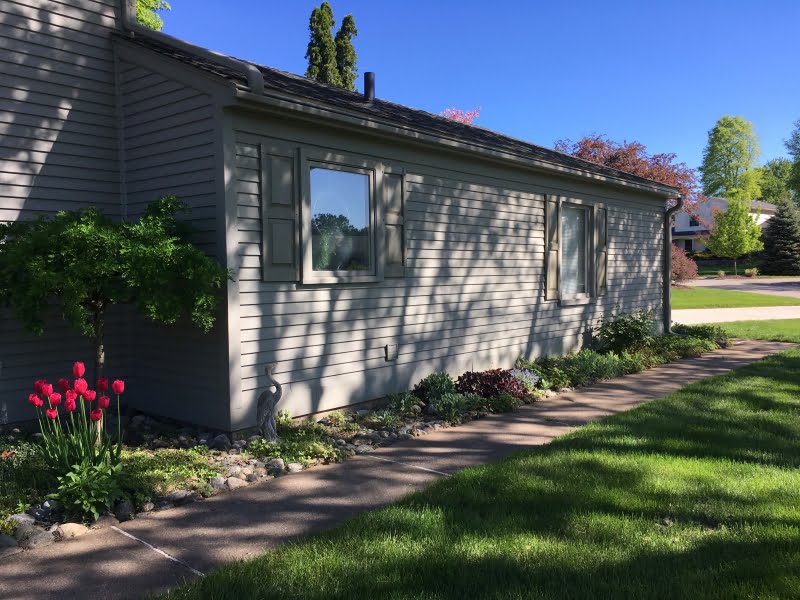
Brick Paver Patio Design. Transform. Enjoy!
From constructing new landscapes to touching up an existing one, we’re keeping your community beautiful!
Cracks in your patio bricks can be a serious problem, but the severity depends on the size, location, and number of cracks. Are Cracks in My Brick a Serious Problem? Cracks in your patio bricks in SE Michigan can be a serious problem, the severity depends on the size, location, and number of cracks. Here’s a breakdown to help you assess the situation:
Call Today! (248) 939-3600
Homeowners in the Northville and Plymouth area often worry about the appearance of cracks in their brickwork and wonder if they are a serious issue. The severity of cracks in brickwork in SE Michigan can vary, and it’s important to understand the different types of cracks. With over 20 years of experience, BLACKSTONE LANDSCAPING, INC. is the go-to expert for brick and foundation repair in Southeast Michigan. Our professionals can help identify the type of crack and determine if it indicates a serious problem.
Minor Cracks (Hairline or Less Than 1/4 Inch Wide):
- These are generally considered cosmetic and shouldn’t affect the structural integrity of your patio.
- You can choose to leave them as-is or fill them with a concrete crack filler for a more finished look.
Moderate Cracks (1/4 Inch to 1/2 Inch Wide):
- These cracks may allow water to seep in and freeze during winter, potentially causing further damage.
- It’s recommended to fill these cracks with a concrete crack filler to prevent water infiltration and potential structural issues.
Major Cracks (More Than 1/2 Inch Wide
- These cracks are a cause for concern and can indicate underlying foundation problems.
- If you have large cracks accompanied by uneven surfaces or settling, it’s best to consult a professional for evaluation and repair recommendations.
Additional Factors to Consider:
- Number of Cracks: A single minor crack is less concerning than multiple cracks throughout the patio.
- Location of Cracks: Cracks near the edges or corners are less critical than those close to the center of the patio, which can impact stability.
- Movement of Cracks: If the cracks seem to be getting bigger, it’s a sign of a worsening problem and requires professional attention.
Recommendations:
- For minor cracks, filling them with a concrete crack filler is a DIY project.
- For moderate cracks, filling them yourself can be a temporary solution, but consulting a professional for long-term solutions is recommended.
- For major cracks or cracks accompanied by settlement, professional evaluation and repair are crucial.
By considering the size, location, number of cracks, and any movement, you can get a better sense of the seriousness of the problem. For major cracks or concerns about the structural integrity of your patio, consulting a professional is always best to prevent further damage and ensure your patio’s safety.
Don’t Ignore These Signs of Serious Cracks in Your Brickwork
Cracked brickwork can be an eyesore, but it’s important to know when it becomes a sign of a more serious problem. Here are key indicators that your brick cracks require professional attention:
Efflorescence:
- Notice a white, powdery substance on your bricks? This could be efflorescence, a sign of water intrusion.
- When water containing dissolved salts evaporates from within the brick, it leaves these salts behind as a white residue.
- Structural damage allowing moisture infiltration can accelerate efflorescence formation.
Spalling:
- Are your bricks flaking or chipping? This could be spalling, caused by trapped moisture freezing and expanding within the bricks.
- Spalling is often a symptom of underlying structural issues that lead to moisture infiltration.
Mold and Mildew Growth:
- Mold and mildew growth inside your home or business can be a serious health hazard.
- If you find mold or mildew, it could be a sign that moisture is entering through cracks in your brickwork.
Deterioration of Mortar Joints:
- Are the mortar joints between your bricks cracking and crumbling?
- This can be caused by shifting or settling brickwork, often due to underlying structural problems.
- Cracked mortar joints allow moisture to seep into the brick itself, worsening other issues.
Don’t Wait – Get a Professional Inspection:
If you notice any of these signs alongside cracks in your brickwork, don’t ignore them. Early detection is key to preventing further damage. A professional foundation and masonry repair company can:
- Inspect your building: A thorough inspection will identify the cause and severity of the cracks.
- Identify underlying issues: They can pinpoint any structural problems contributing to the cracks.
- Recommend solutions: Based on their findings, they can suggest the best course of action to address the cracks and underlying issues.
Taking action now can save you money and prevent further damage to your property.

